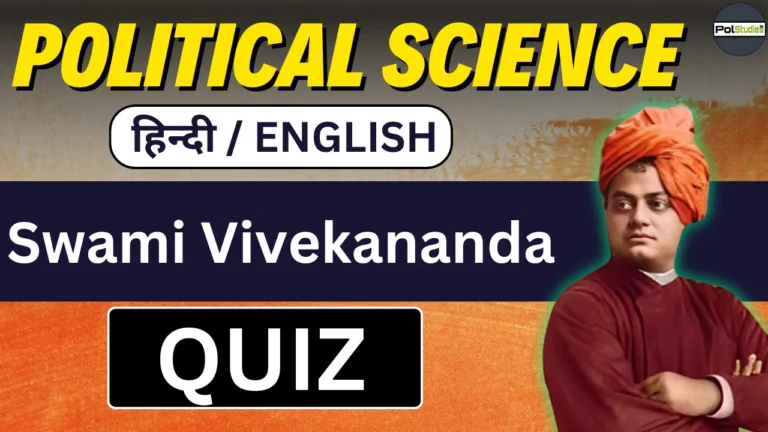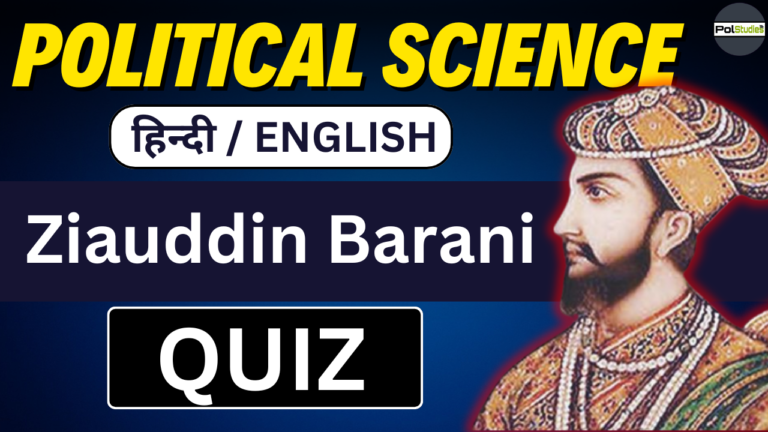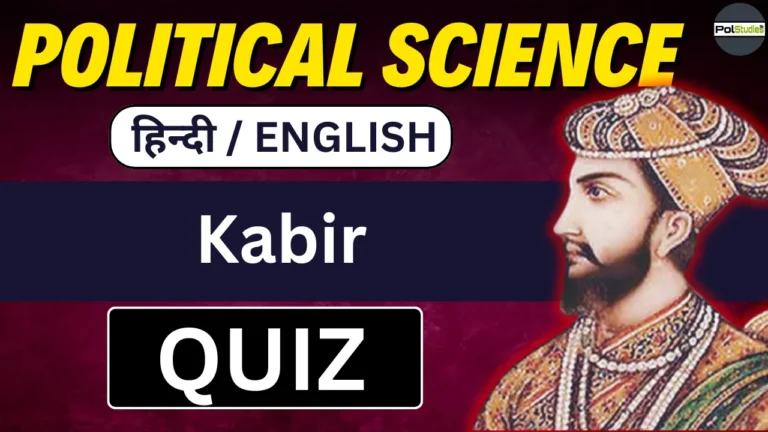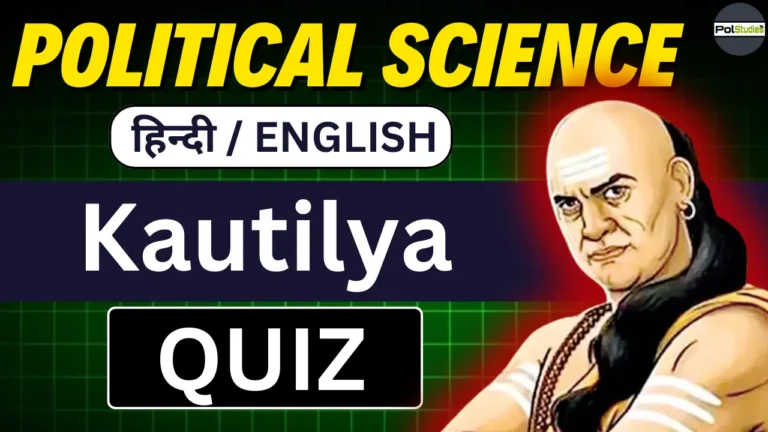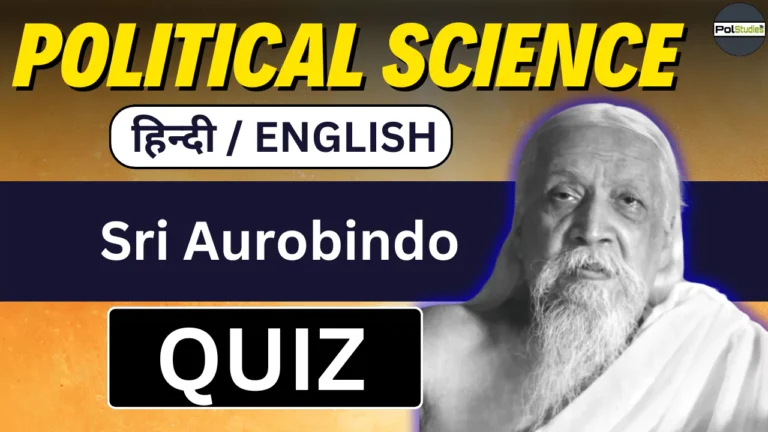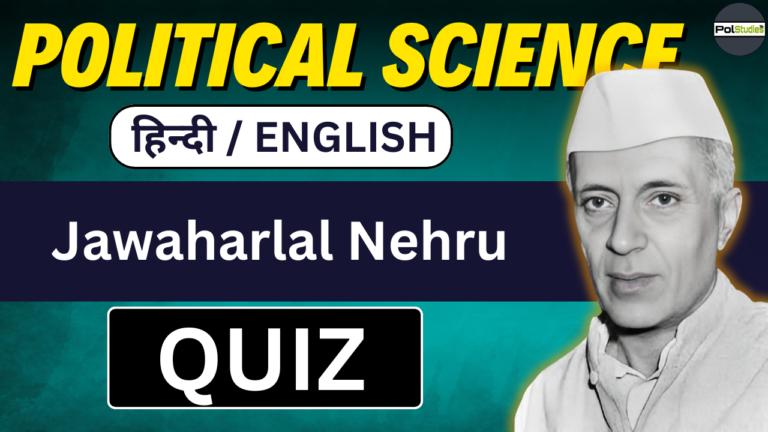E. V. Ramasamy Major Theories | Notable Works | UGC NET | CUET-PG
1. Introduction:
Erode Venkata Ramasamy (1879–1973), popularly known as Periyar, was a rationalist thinker, social reformer, and anti-caste activist from Tamil Nadu.
He was the founder of the Self-Respect Movement and the Dravidar Kazhagam, and one of the most radical voices against Brahminical dominance, caste hierarchy, patriarchy, and religious orthodoxy.
- Periyar rejected both Hindu religious doctrines and North Indian political dominance, advocating for Dravidian identity and social justice.
- He is regarded as a foundational figure in the Dravidian movement, which has shaped Tamil politics ever since.
Whatch on YouTube
2. Major Philosophical and Political Ideas:
(a) Rationalism and Anti-Brahminism:
- Periyar championed rationalism and scientific temper against religious dogma.
- He believed that religion, especially Hinduism, perpetuated inequality and oppression, particularly through the caste system.
- He openly criticized the Vedas, Manusmriti, and idol worship as tools of Brahminical hegemony.
“There is no god; there is no god at all. He who invented god is a fool.”
(b) Self-Respect Movement (1925):
- This movement aimed at restoring dignity to non-Brahmin communities, particularly the Sudras and Dalits.
- It promoted inter-caste marriage, widow remarriage, rejection of caste-based rituals, and education for all.
- The goal was to assert individual dignity and social equality through self-respect and rational inquiry.
(c) Dravidian Identity and Anti-Hindi Imposition:
- Periyar argued that Dravidians (South Indians) had a distinct culture and history that was colonized by Aryan Brahminism.
- He opposed the imposition of Hindi as a national language, calling it cultural imperialism.
- He supported the idea of a separate Dravida Nadu to resist North Indian political and cultural dominance.
(d) Feminism and Women’s Rights:
- Periyar was a pioneer of feminist thought in India.
- He supported women’s right to education, property, marriage choice, and political participation.
- He condemned patriarchal norms, child marriage, dowry, and religious justification for women’s subjugation.
(e) Democracy and Social Justice:
- He called for a casteless, classless, and equitable society, based on democratic principles.
- Periyar’s ideology was aligned with secularism, socialism, and state intervention in eradicating social inequality.
Quiz in English
3. Major Works and Contributions:
| Work / Movement | Description |
|---|---|
| Kudi Arasu | A Tamil weekly magazine started in 1925 to promote rationalism and social reform. |
| The Self-Respect Movement | A landmark movement against caste, superstition, and Brahminical dominance. |
| Why Religion? | A book questioning the basis and purpose of religion. |
| Thoughts of Periyar | Collection of speeches and writings expressing his socio-political philosophy. |
| Viduthalai | Daily newspaper through which he spread anti-caste, anti-religion messages. |
Quiz in Hindi
4. Legacy and Impact:
- Periyar remains a towering figure in Tamil Nadu’s socio-political landscape.
- His ideas directly influenced the Dravidian parties like DMK and AIADMK, which have ruled Tamil Nadu for decades.
- He laid the foundation for affirmative action, social justice politics, and rationalist discourse in India.
- Though controversial, his work has been foundational in advancing Dalit rights, gender justice, and anti-caste consciousness.
5. Conclusion:
E.V. Ramasamy “Periyar” was a fearless iconoclast who relentlessly fought against caste oppression, religious dogma, and patriarchy.
His legacy is not merely political but deeply social and philosophical, challenging India to confront its structures of inequality.
He remains one of the boldest voices for dignity, rationality, and human equality in modern Indian history.


